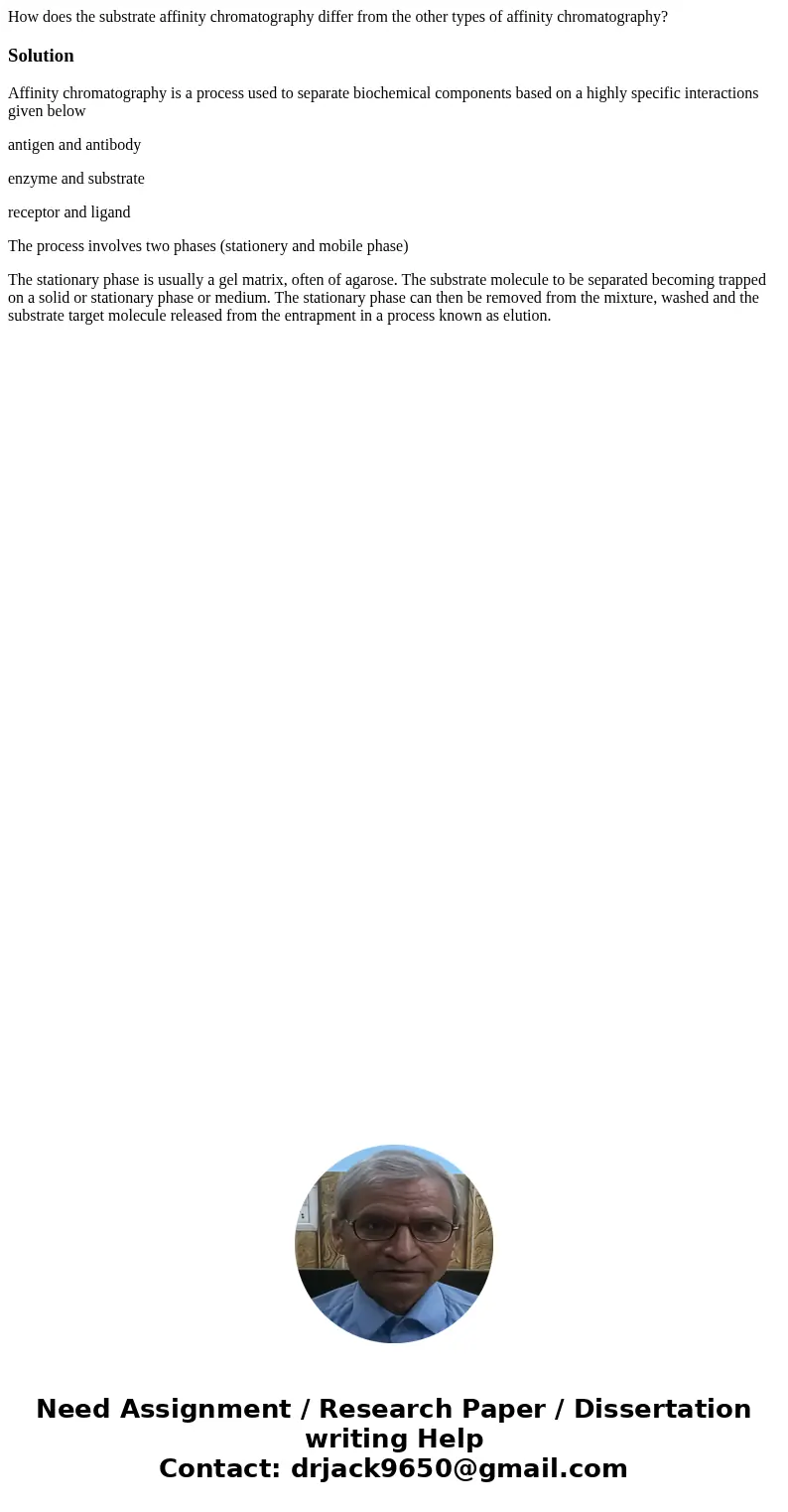How does the substrate affinity chromatography differ from t
How does the substrate affinity chromatography differ from the other types of affinity chromatography?
Solution
Affinity chromatography is a process used to separate biochemical components based on a highly specific interactions given below
antigen and antibody
enzyme and substrate
receptor and ligand
The process involves two phases (stationery and mobile phase)
The stationary phase is usually a gel matrix, often of agarose. The substrate molecule to be separated becoming trapped on a solid or stationary phase or medium. The stationary phase can then be removed from the mixture, washed and the substrate target molecule released from the entrapment in a process known as elution.

 Homework Sourse
Homework Sourse